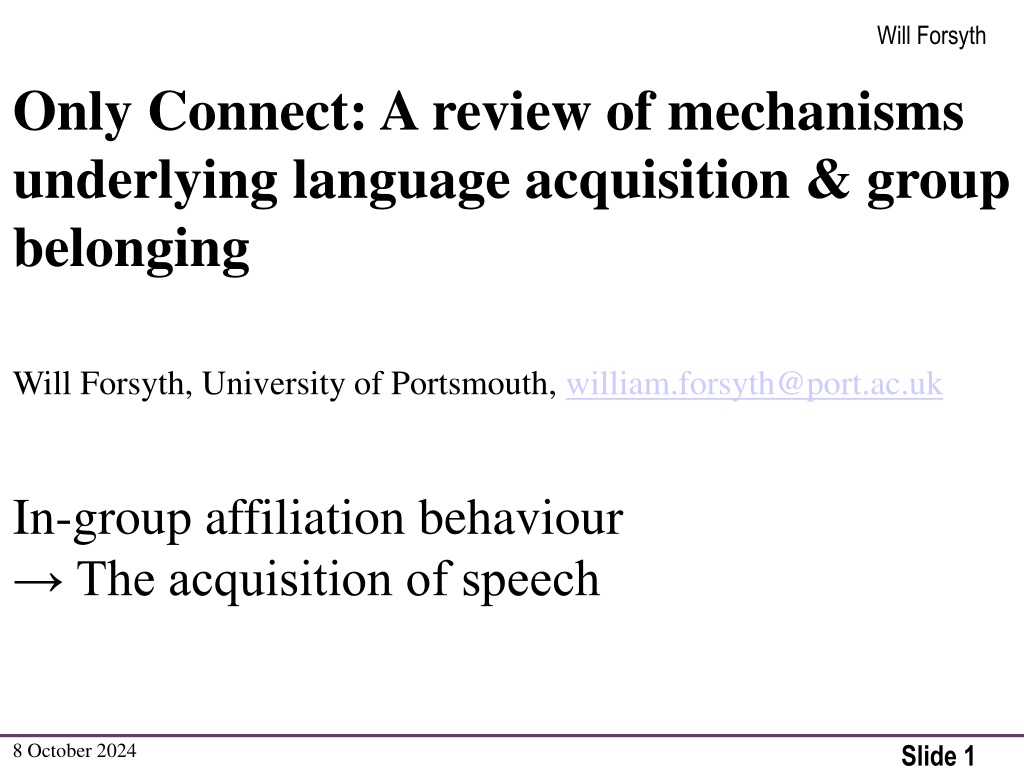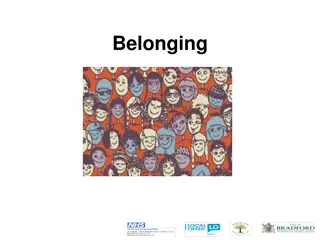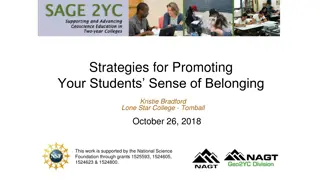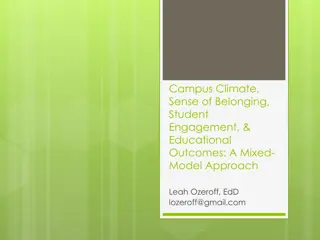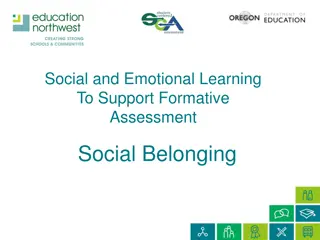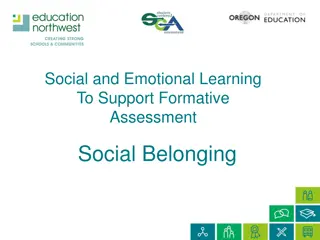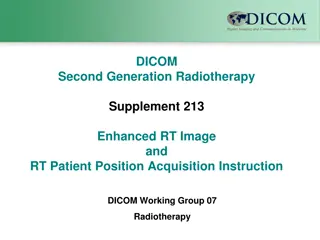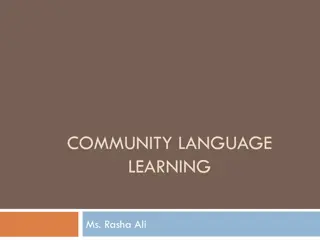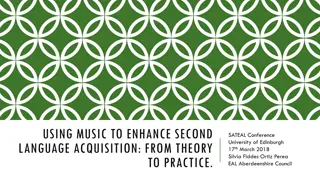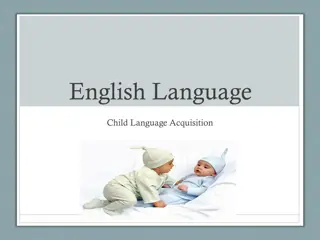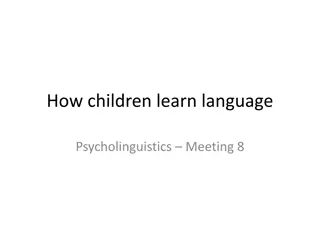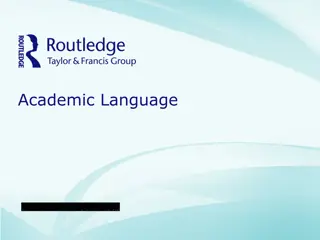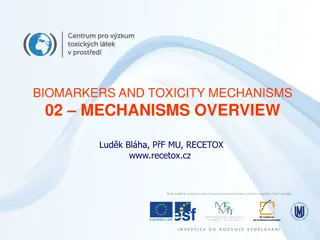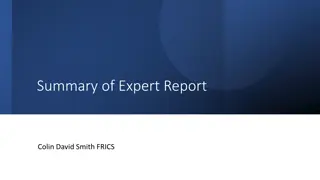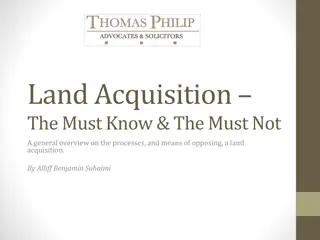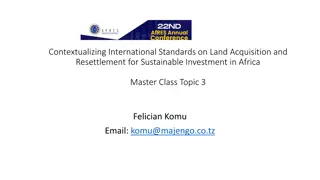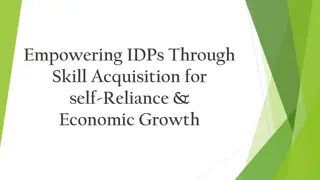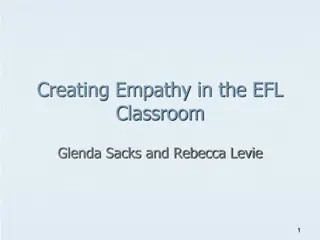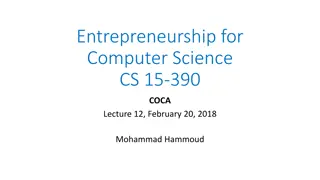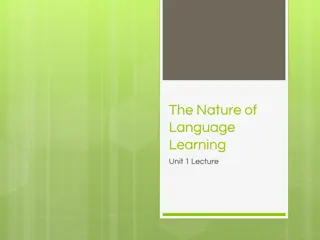Mechanisms Underlying Language Acquisition and Group Belonging
Will Forsyth's review explores how in-group affiliation behaviors facilitate speech acquisition through sociocultural, social-psychological, and social cognition approaches. Neural adaptations in Homo sapiens since Australopithecus, particularly in speech-related areas, are crucial for language evolution. The operation of these neural adaptations for speech requires imitation and practice mediated by hormones, with oxytocin playing a significant role. References cover topics such as brain evolution, language processing, and early language acquisition.
Download Presentation

Please find below an Image/Link to download the presentation.
The content on the website is provided AS IS for your information and personal use only. It may not be sold, licensed, or shared on other websites without obtaining consent from the author. Download presentation by click this link. If you encounter any issues during the download, it is possible that the publisher has removed the file from their server.
E N D
Presentation Transcript
Will Forsyth Only Connect: A review of mechanisms underlying language acquisition & group belonging Will Forsyth, University of Portsmouth, william.forsyth@port.ac.uk In-group affiliation behaviour The acquisition of speech 8 October 2024 Slide 1
Will Forsyth In-group affiliation behaviour facilitates speech acquisition sociocultural (e.g. Vygotsky 1962) social-psychological (e.g. Schuman 1986; Hoffman 1989) social cognition approaches (e.g. Tomasello 2003a) Infant Directed Speech (e.g. Bruner 1983a; Kuhl 2000; 2010). 8 October 2024 Slide 2
Will Forsyth Australopithecus ---------------------------------- Neanderthal Sapiens 4 - 2m1 ---------------------------------- 250k - 50k/35k2 315k/200k -? yrs ago yrs ago yrs ago Neural adaptations in homo since Australopithecus (Fitch, 2018, p. 269)
Will Forsyth Operation of neural adaptations for speech requires imitation and practice mediated by hormones, particularly oxytocin 2m - 250k years coevolution of oxytocin-mediated speech acquisition + in-group affiliation behaviours 8 October 2024 Slide 4
Will Forsyth References Aboitiz, F. (2018). A Brain for Speech. Evolutionary Continuity in Primate and Human Auditory-Vocal Processing. Frontiers in Neuroscience, 12. DOI=10.3389/fnins.2018.00174. Retrieved from https://www.frontiersin.org/article/10.3389/fnins.2018.00174 Bruner, J. (1983a). Child s talk: learning how to use language. Oxford University Press Cristia, A., Minagawa, K. Y., Egorova, N., Gervain, J., Filippin, L., Cabrol, D., & Dupoux, E. (2014). Neural correlates of infant accent discrimination: an fNIRS study. Developmental Science, 17(4), 628 635. https://doi.org/10.1111/desc.12160 De Dreu, C. K. W. and Kret, M. E. (2016). Oxytocin Conditions Intergroup Relations Through Upregulated In-Group Empathy, Cooperation, Conformity, and Defense. Biological Psychiatry, 79, 165-173. http://dx.doi.org/10.1016/j.biopsych.2015.03.020 Fitch, W. T. (2018). The biology and evolution of speech: A comparative analysis. Annual Review of Linguistics 4, 255 79. https://doi.org/10.1146/annurev-linguistics011817-045748 Friederici, A. D. (2011). The Brain Basis of Language Processing: From Structure to Function in Physiological Reviews, 91. pp 1357-1392. Interactive version, retrieved from http://onpub.cbs.mpg.de/index.html. 8 October 2024 Slide 5
Will Forsyth Herries A. I. R. et al. (2020). Contemporaneity of Australopithecus, Paranthropus, and early Homo erectus in South Africa. SCIENCE, 368(6486). https://www.science.org/doi/10.1126/science.aaw7293 Hoffman, D. M. (1989). Language and Culture Acquisition among Iranians in the United States. Anthropology & Education Quarterly, (2). 118 Kuhl, P. K. (2000). A new view of language acquisition. Proceedings of the National Academy of Sciences 97(22), 11850-11857. doi 10.1073/pnas.97.22.11850. Retrieved from http://www.pnas.org/content/97/22/11850.full.pdf Kuhl, P. K. (2004). Early language acquisition: Cracking the speech code. Nature Reviews Neuroscience, 5, 831-843. Kuhl, P. K. (2010). Brain mechanisms in early language acquisition. Neuron 67. DOI 0.1016/j.neuron.2010.08.038. Retrieved from http://www.ncbi.nlm.nih.gov/pmc/articles/PMC2947444/ Kuhl, P. K., Conboy, B. T., Padden, D., Nelson, T. & Pruitt, J. (2005). Early Speech Perception and Later Language Development: Implications for the "Critical Period". Language Learning and Development, 13-4, Pp 237-264, DOI: 10.1080/15475441.2005.9671948 8 October 2024 Slide 6
Will Forsyth Kuhl, P. K., Tsao, F. -M., Liu, H. -M., Zhang, Y., & de Boer, B. (2001). Language/Culture/Mind/Brain: Progress at the margins between disciplines. In A. Domasio et al. (Eds.). Unity of knowledge: The convergence of natural and human science (pp. 136-174). New York: The New York Academy of Sciences. Markova, G. (2018). The games infants play: Social games during early mother infant interactions and their relationship with oxytocin. Frontiers in Psychology, 9. https://doi.org/10.3389/fpsyg.2018.01041 Schumann, J. H. (1986). Research on the acculturation model for second language acquisition, Journal of Multilingual and Multicultural Development, 7:5, 379- 392, DOI: 10.1080/01434632.1986.9994254 Theofanopoulou, C., Boeckx, C., & Jarvis, E. D. (2017). A hypothesis on a role of oxytocin in the social mechanisms of speech and vocal learning. Proceedings of the Royal Society B: Biological Sciences, 284(1861), 1 8. https://doi.org/10.1098/rspb.2017.0988 Timmermann, A. (2020). Quantifying the potential causes of Neanderthal extinction: Abrupt climate change versus competition and interbreeding, Quaternary Science Reviews, 238(106331). https://doi.org/10.1016/j.quascirev.2020.106331. Tomasello, M. (2003b). The key is social cognition. In Language and Thought. Gentner, D. and Kuczaj, S. (Eds.). Cambridge, MA: MIT Press. Pp. 47 51. 8 October 2024 Slide 7
Will Forsyth van Heugten, M., & Johnson, E. K. (2014). Learning to contend with accents in infancy: benefits of brief speaker exposure. Journal of experimental psychology. General, 143(1), 340 350. https://doi.org/10.1037/a0032192 Vygotsky, L.S. (1962). Thought and Language. Cambridge, MA: MIT Press. 8 October 2024 Slide 8
